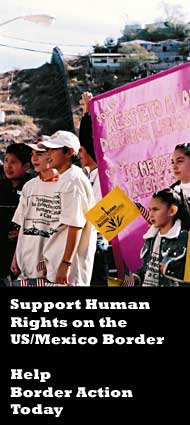
Labor Day was the perfect day for the grand opening of Arizona's first worker rights center.
What's a worker rights center, you ask?
The Interfaith Worker Justice AZ Worker Rights Center is a place where anyone who gets paid for his or her labor can come to learn his or her rights under AZ law, and find out how to seek remedies when those rights are violated.
We teach workers how to use legal remedies to respond workplace violations, provide legal aid, and help workers reach out to educate and assist others who've faced similar abuse and exploitation. We call on employers, large and small, who are charged with unsafe working conditions, wage theft, overtime exploitation, discrimination, and violating workers' civil and human rights to dialog and to reach voluntary restitution. If necessary, we also hold demonstrations and prayer vigils to draw the public's attention to intractable abuse. Not least, we work to increase Arizona's minimum wage to living wage levels, testify at state and federal hearings, and work to pass laws to create fair, just, and safe working conditions for all Arizonans.
What does Arizona law do to protect Arizona workers, you ask?
I'll tell you right now: Precious little. Worse still, perhaps, is the state's labor culture. This is not the place to come expecting respect for workers' rights.Maybe today's enslavement here is more of the company-store variety, but without a doubt there are out-of-the-way places in Arizona where undocumented workers are routinely trapped without means of escape to work in slave labor conditions. (For an eye-opener on slave labor in America in today's global economy, see Nobodies.)
A more anti-labor mentality I've never seen anywhere. That's saying something, because I grew up in the Southeast and cut my teeth on so-called "right to work" Republican lawmaking. I think it's because this state has deep roots in the most brutal mining and agricultural traditions of the Old West--copper, citrus, construction, and cotton--each as cruel an exploiter of Native Americans, Mexicans, and poor Anglos as anything the South ever offered.
Wage Theft
It's not getting better. The raging wars on unions and on undocumented workers seems to have given unscrupulous employers large and small a license to let loose, big time. On our first day, 27 people walked in for help, and over 100 people called to report mostly wage theft. That's when a person works for days or even weeks and isn't paid one thin dime.
And it happens all the time. Mostly, from what I've seen so far, the cheatering exploiters are small-time contractors--house painters, roofers, landscapers and the like--who hire day laborers for short- and medium-term jobs at an agreed-upon pay rate and then stiff the workers, most of whom are men and women new to this country. They don't speak English well and they know little about how to protect themselves. As long as they have to work to live, they're easy marks for unscrupulous predators.
And it's not limited to the small-timers. I've personally interviewed men who work for large, prominent, well-known commercial and residential construction companies. Their stories made me ashamed and angry. It blows my mind that everybody isn't ashamed and angry. When one of us cheats and abuses others, it reflects badly on all of us. What's more, it ought to be obvious that any employer who will exploit his or her workers will also exploit his or her customers.
But now, at last, there's a Worker Rights Center in Arizona. It's not going to solve the problem of worker abuse, but it's a brave step in the right direction, and as a bit player in the Center, I'm awfully proud of it. I hope you will be, too.
And I hope you'll help us, financially and with your time and talents. Call 602-254-5452, or visit us at 331 E. Willetta St. for more information. If you can spare a few hours, your help is badly needed, especially if you speak both English and Spanish. Currently, volunteers from Catholic, Protestant, Muslim, Jewish, Pagan, and freelance faith traditions--and even some who're unattached-- assist with day-to-day functions, but more volunteers are always needed, especially bilingual Spanish/English speakers.
The Center is directed by the Rev. Trina Zelle, an ordained Presbyterian minister, and the Rev. Liana Rowe, an ordained United Churches of Christ minister, both of whom have deep connections to worker and immigrant justice issues throughout the Southwest. The IWJ-AZ/WRC board is made up mostly of workers themselves. Virtually all our funding comes from faith-based organizations.
Because we exist to improve working conditions, benefits, and wages especially for low-wage workers, we work directly in partnership with faith-based organizations and with workers themselves. We are an independent, nonprofit, volunteer-driven organization that is not affiliated with any labor union. Anywhere there's advocacy for workers, IWJ-AZ is there.
Interfaith Worker Justice is a national organization with chapters almost everywhere. It exists because the need is immense.



















1 comments:
Two weeks out from the opening and the phones have yet to stop ringing. The varieties of ways in which humans inflict horrors on other humans continue to expand, and the need, while perceived initally to be great, has exceeded any possible human expectation. Employers have perpetrated every possible indignity on human beings you can imagine, and even some you can't and wouldn't want to. SOME of the victims make it to our doorstep, resilient enough to have enough strength and dignity to even ASK for help. We can't help all of them. God knows we want to try.
Post a Comment